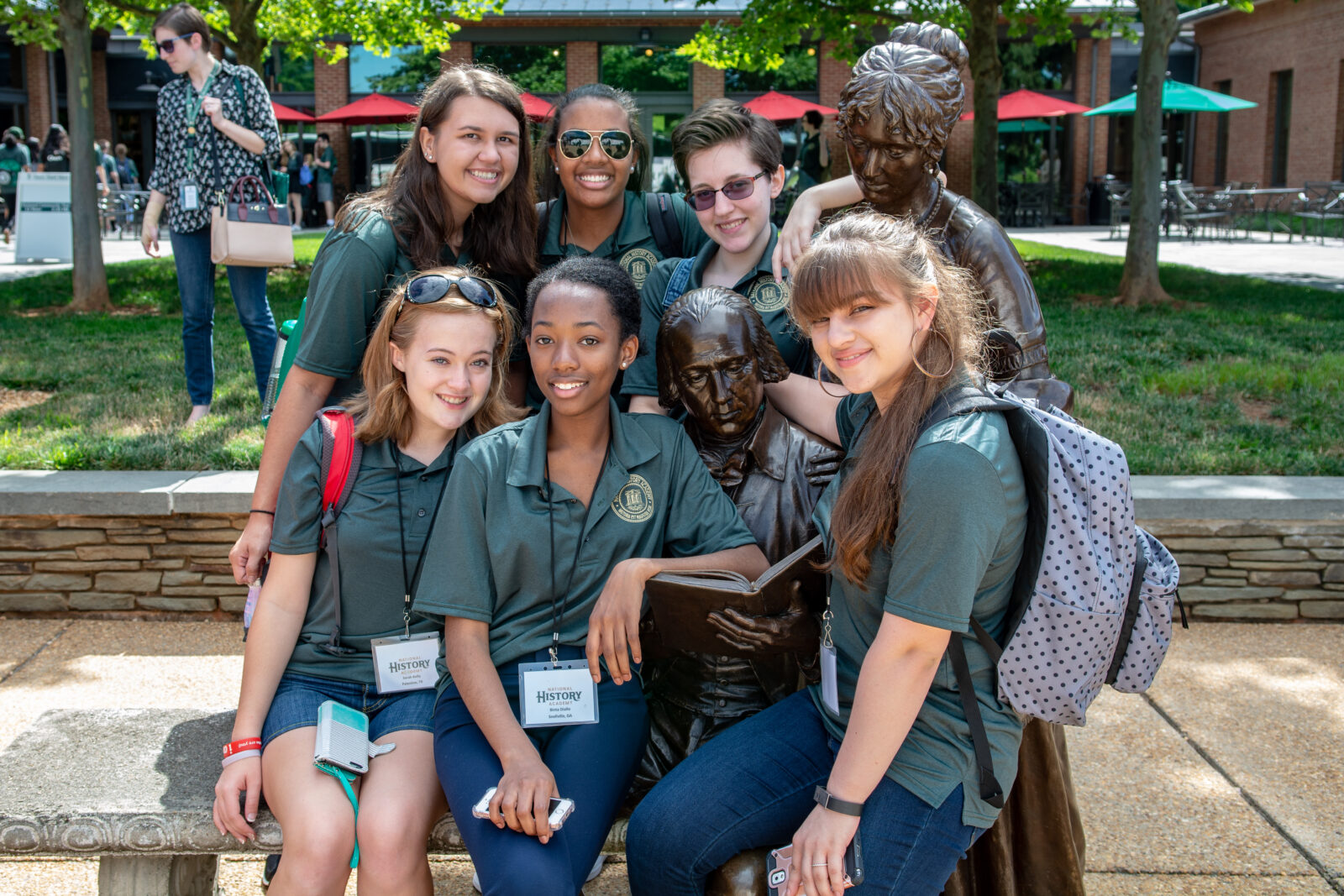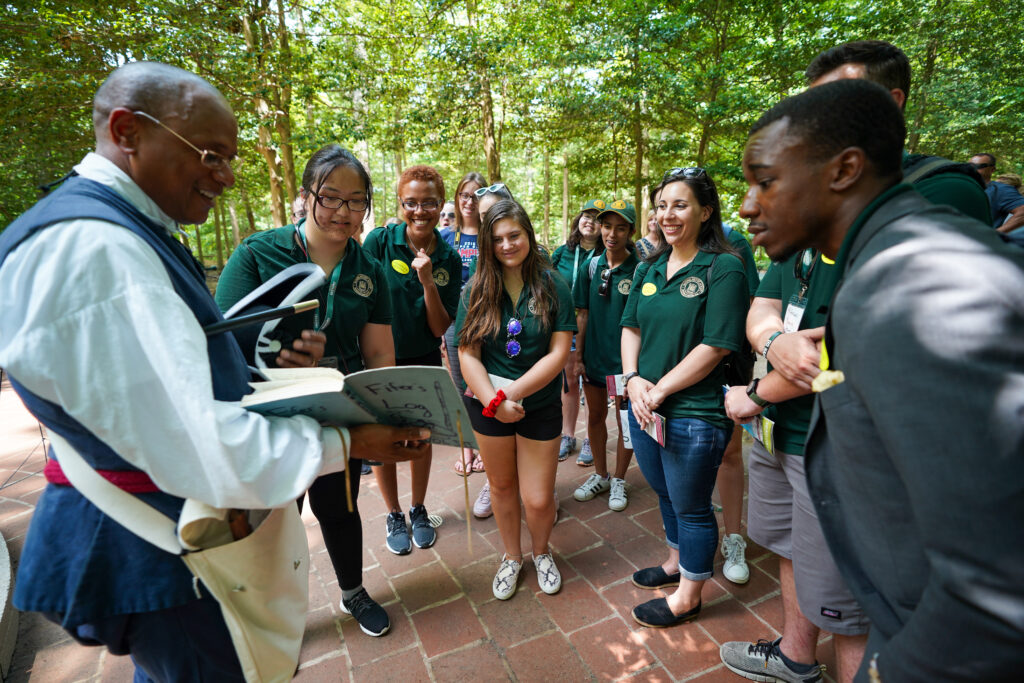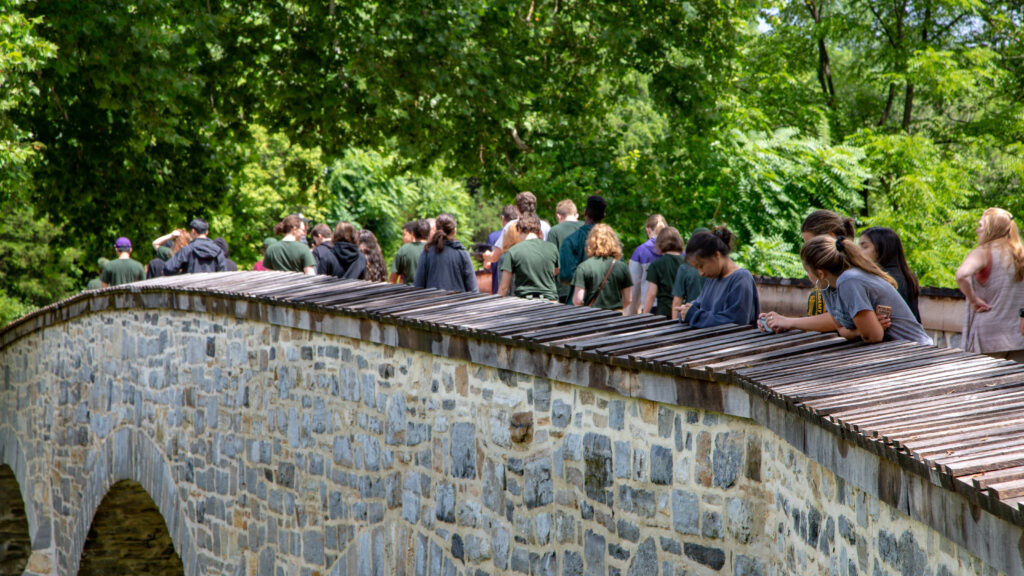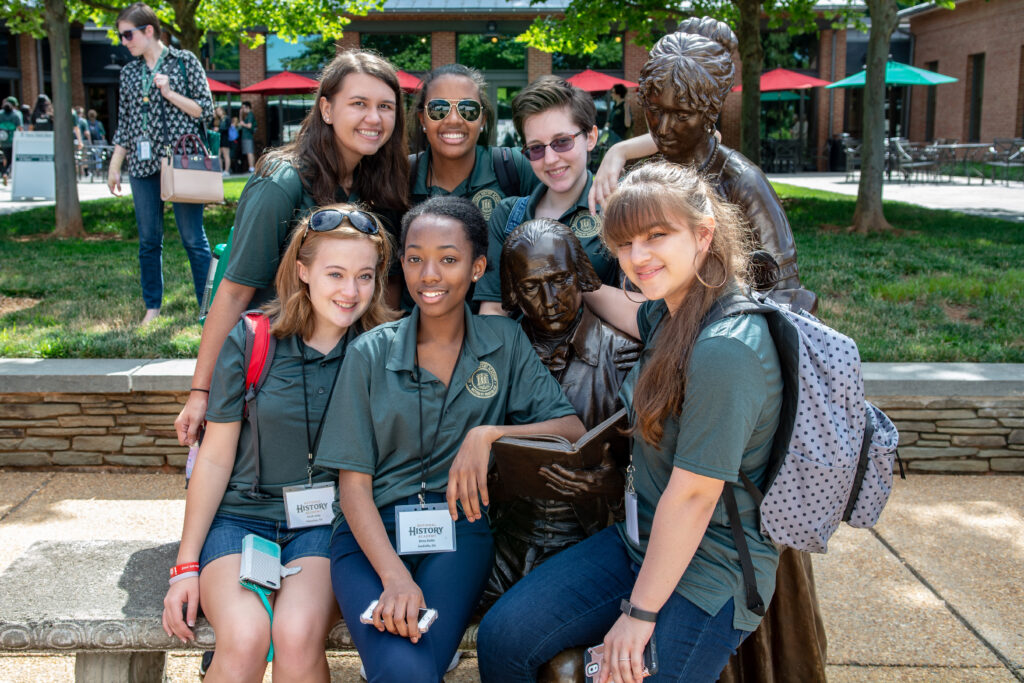National History Academy: Future Leaders Learn from the Past at Foxcroft

Written by Kaitlin Hill | Photos courtesy of National History Academy
When considering the question, “How do we prepare an informed citizenry in the country?” William Sellers, president and CEO of the National History Academy and president of the Journey Through Hallowed Ground National Heritage Area, believes that studying the past is essential to understanding the present and planning for the future.
“The study of our past is just as much the study of our present,” Sellers explains, adding, “Our history, in many ways, is being politicized and weaponized. To have academic programs that allow students to study our history in a meaningful and direct way, and to make sense of it is really important.”
Sellers became president of the Journey Through Hallowed Ground National Heritage Area in 2015, and quickly experienced the concept of contextualizing history for future generations. “In my first summer at the Journey, I was exposed to our ‘Extreme Journey’ day program for middle school students locally, mostly from Loudoun and Fauquier counties.” The program, which includes a hike up a mountain to learn about Jefferson at Monticello, a canoe trip down the Shenandoah River to study John Brown at Harpers Ferry, and even a bike tour of Gettysburg, would serve as inspiration for the National History Academy. “I was looking at all of our programs and thought, ‘This is something that every student in the country should have the opportunity to experience.’”
“So we started to plot out how we might build an academic program for high school students that was based around place-based learning.” Sellers expands, “We launched the concept in the summer of 2017. Jacqueline Mars hosted our kick-off event for us with David Rubenstein as our keynote speaker … and there was nothing like it in this country.”

Using sites from the Journey Through Hallowed Ground region and adding others a stone’s throw away like Shenandoah National Park, Antietam National Battlefield, Manassas Battlefield, the Library of Congress, Montpelier, Mount Vernon, and Belmont-Paul Women’s Equality National Monument (to name a few), Sellers realized the program could “tell the entire scope of American history” from the signing of the Constitution to Martin Luther King, Jr., and the American Civil Rights Movement.
Sellers centered the program around historical and civic literacy, using Harvard Business School professor David A. Moss’ “Democracy: A Case Study” to develop the curriculum. Moss even came down from Harvard to lead case discussions with students for NHA’s first two sessions. But, according to Sellers, another, even more important lesson learned by graduates of the academy is social literacy. “So often students say of their schools that either they are in an echo chamber, and everyone thinks the same, or they have a minority opinion and, if they speak up, they’ll be shouted down. It’s the same problem we have with adults in the country right now, too.”
The solution? For Sellers, bringing together a diverse student body in an atmosphere that encourages conversation. “The diversity piece is so important in creating a cohort of students that reflects America. It’s geographic diversity, political diversity, socioeconomic diversity, racial diversity, ethnic diversity. We bring together students from all corners of the country.” He adds, “This summer we’ll have students from 31 states, plus D.C., the Mariana Islands, and Guam. We want to get to the point where every state is represented every summer.”
Though the student population is undeniably diverse, there is one applicant quality that has proven to be the same. “They are interested in our history because they are worried about our country,” explains Sellers. “They see history as a tool to understand our present.”

Creating a college-like campus is crucial to fostering connections between National History Academy participants. That’s where Foxcroft comes in. “To be able to make those connections, we have to have that college prep emphasis. Foxcroft is such a great campus to host us.” He continues, “It’s beautiful, it has all the amenities and facilities you could ask for. We really do turn it into a mini college campus every summer.”
Sellers praises the Foxcroft leadership, too. He says, “The staff and leadership at Foxcroft is just wonderful. I have so much respect for Cathy McGehee and what she is accomplishing there.” He continues, “Her team is so easy to work with and provides such a great experience. … There is not a single thing we are doing that Foxcroft can’t help provide us.”
During the four-week program, 10th, 11th, and 12th grade students reside at Foxcroft, visit sites of historical significance, participate in case studies and debates, and attend a speaker series that includes experts in the field and local leaders.
“One of our speakers, the past three summers we’ve operated at Foxcroft, has been Ernest Green, who is one of the Little Rock Nine. Local political leader Bridge Littleton talked to the students last summer. And, Phyllis Randall, the chair of the board of supervisors in Loudoun County spent two days [with us].
“In our first two years, Robert Duvall talked to the kids about portraying historical figures in film and even gave a short acting lesson.”
When asked about the desired outcome for those who attend the academy, Sellers says, “This program is an attempt to save our democracy, in a way. I know it sounds puffed up, but our democracy is in crisis. To study our past is to understand the foundations of democracy and what it means to be an American in 2023.”
He adds, “Every summer I see a bunch of future leaders for this country.”

Looking ahead for the program, Sellers hopes to make it available to even more students and in more regions of the U.S. And he is always working toward more scholarships to support more students. He says, “It is something that has great potential for growth.” ML
For more information on the National History Academy, visit nationalhistoryacademy.org.
Published in the July 2023 issue of Middleburg Life.








